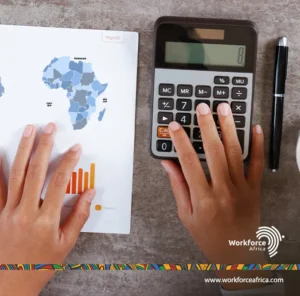Digital content conversion has shifted from a “nice to have” to a strategic necessity. For organisations across Africa, the ability to adapt and scale learning is no longer optional. Workforces are younger, markets move faster, and employees expect more relevant and accessible training than traditional classroom methods can provide. Companies that fail to update their learning approaches risk being left behind, while those that act are setting the foundation for resilience and long-term growth.

Why Continuous Learning Matters
In most industries, the skills required today look very different from those needed even five years ago. Technology has changed job roles, customer expectations are higher, and competition can now arrive from any part of the world. This reality has made continuous learning in Africa central to business success.
When employees learn continuously, organisations gain agility. A sales team can quickly adapt to a new compliance regulation. An operations unit can implement a new system without lengthy downtime. More importantly, people feel invested in and are more likely to stay with their employer. Retention improves because staff see their growth aligned with the company’s growth.
The Role of Digital Content Conversion
So how does digital content conversion fit into this picture? At its core, conversion takes static resources such as PowerPoint slides, manuals, and workshop notes and reworks them into digital formats that are interactive, engaging, and accessible on multiple devices.
This matters because organisations often sit on a mountain of knowledge but struggle to deliver it effectively. Converting that content into digital learning ensures employees can engage with it at their own pace, revisit it when needed, and apply it directly on the job. For instance, a compliance manual turned into a scenario-based module helps staff practise decisions instead of only reading rules.
In other words, digital corporate learning is not about abandoning classroom teaching but extending it. It connects theory with practice, ensures consistency across regions, and makes knowledge available at the point of need.
Strengthening Workforce Learning in Africa
A strong case can be made that workforce learning in Africa faces unique challenges. Internet access varies, resources are often stretched, and teams may be distributed across cities and regions with different levels of infrastructure. Traditional training models, which rely heavily on travel and face-to-face sessions, quickly become expensive and uneven.
Digital content conversion addresses these barriers. By creating lightweight, mobile-friendly formats, organisations ensure that training can reach employees regardless of geography. Offline capabilities can be built in for areas with unstable connectivity. And once the content is created, it can be delivered repeatedly without incurring additional costs.
The practical benefit? An organisation with branches in Lagos, Nairobi, and Accra can train its people simultaneously with the same content, ensuring no group is left behind.
Making Learning Scalable
Scalability is where digital truly shines. With scalable digital learning in Africa, businesses can reach hundreds or even thousands of employees quickly and consistently. New hires can be onboarded faster, product launches can be supported across multiple markets, and compliance updates can be rolled out in days rather than months.
For example, a financial services provider introducing new anti-fraud protocols can convert its training guides into digital modules. Within a week, every branch in Africa could complete the same module, track completion, and verify understanding through assessments. This saves not just time but also ensures compliance risks are minimised.
Scalability also creates room for personalisation. Digital platforms can track learner progress, recommend modules, and allow managers to spot knowledge gaps. This level of insight is impossible to achieve with one-off classroom training.
Why Organisations Should Act Now
Delaying investment in digital content conversion carries real risks. Competitors that are faster to implement digital training can upskill staff more quickly, adapt to new opportunities, and deliver better customer service. Employees increasingly expect flexibility and modern learning tools, and when they do not see them, they often leave for organisations that do.
On the other hand, organisations that adopt digital learning gain immediate benefits:
- Reduced training costs over time
- Improved speed to competency for new and existing staff
- Greater consistency in how knowledge is shared across geographies
- A stronger culture of learning that supports innovation
How Workforce Africa Supports Organisations
At Workforce Africa, we understand that the success of digital corporate learning depends on context. What works in a multinational bank may not be right for a fast-growing local retailer. That is why our approach to digital content conversion is consultative. We start by understanding your current training resources, identify what needs to be adapted, and design formats that fit your audience and objectives.
Our solutions range from interactive storyboards and simulations to bite-sized modules that are mobile-friendly and easy to update. We ensure the content reflects African business realities while applying global best practices in learning design.
By working with us, organisations gain more than just converted content. They gain a partner committed to making workforce learning in Africa accessible, scalable, and impactful.
Conclusion
Organisations that want to stay competitive cannot rely on outdated methods of training delivery. Digital content conversion bridges the gap between what companies already know and how they need to deliver that knowledge today. It ensures that continuous learning in Africa is more than a concept: it becomes an operational reality that drives performance, engagement, and growth.
The choice is clear. Invest in digital corporate learning now, and you set up your organisation to thrive in the years ahead.
Ready to take the next step? At Workforce Africa, our digital content conversion services are designed to help you create scalable digital learning in Africa that empowers your people and strengthens your business.
For more insights, connect with us on LinkedIn and stay engaged with Workforce Africa for the latest on learning, leadership, and workforce solutions across Africa.






